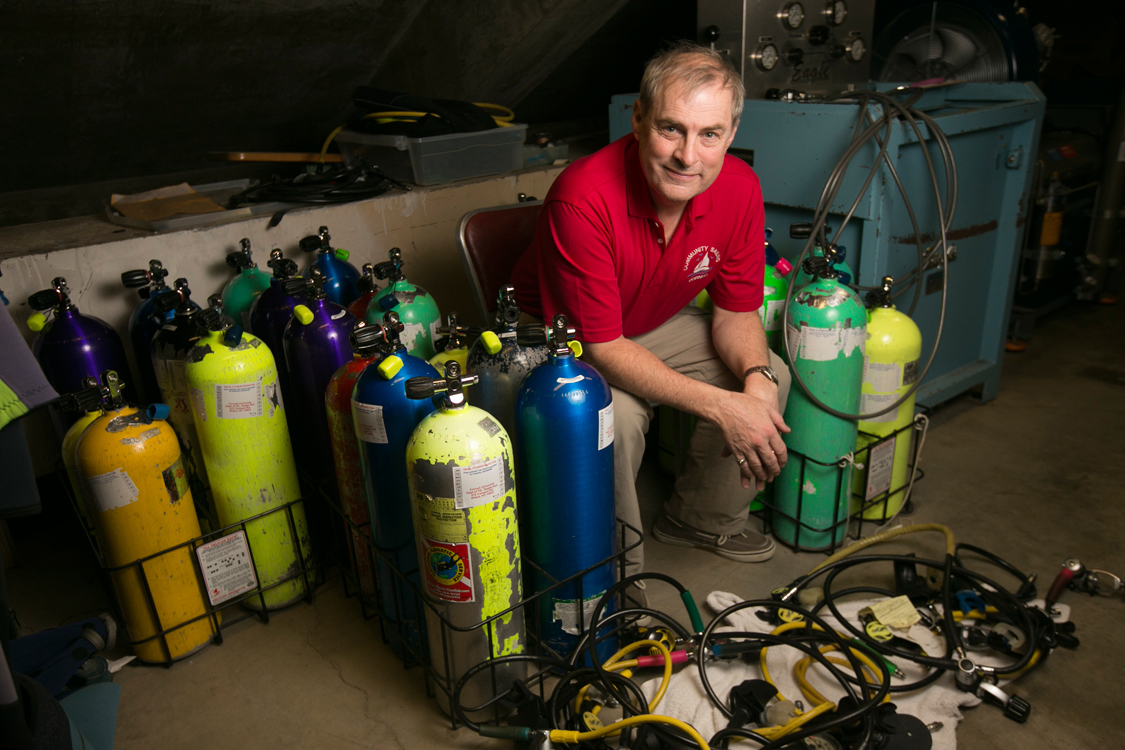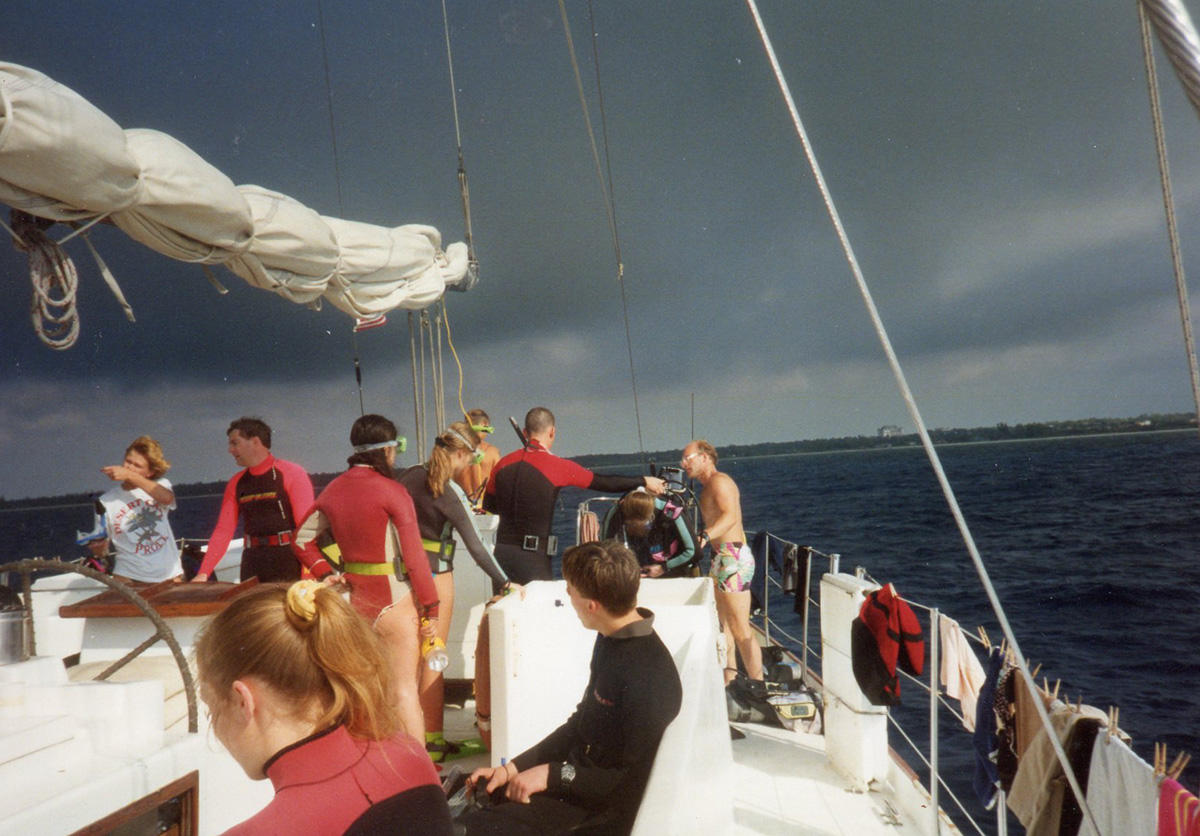Cornell students train to become scuba divers
By Amanda Bosworth


Cornellians have access to an adventure not available at most other colleges: the chance to become fully certified scuba divers.
Since the early 1970s, Cornell students have begun their dive training in the pool of Teagle Hall and making deeper dives in Cayuga Lake. They earn open water diver certification through PADI, the Professional Association of Diving Instructors, which is the world’s largest recreational certification body. Since 1970, Cornell has certified about 2,000 divers.
Frederick DeBruyn ’76, Cornell aquatics director and associate director of physical education, has been involved in the diving program almost since it began. When he arrived as a freshman in 1972, he quickly obtained scuba certification; he was also on the water polo and swim teams. He became Cornell’s only scuba instructor in 1980 and was joined by Rebecca Couillard '91, M.S. ’95, Ph.D. '98, in the mid-1990s. He oversees all aquatics programming at Cornell, including the university swim test, and teaches swimming conditioning and some scuba and sailing sections.
The scuba program operates a full certification program in the fall semester and a “referral program” in the spring. The fall program usually begins the last weekend of August and runs through the first weekend of October. Approximately 40 to 48 students get certified each semester, with six sections of up to eight people each.
Training begins with classroom time and basic underwater skills in the pool. If students feel that group training is moving too fast for them, “we will try to work with them as much as we can but are on at tight timeline, especially in the fall,” said DeBruyn. “We want people to be comfortable in the water.”
The key to diving is not speed, but taking your time, relaxing, learning to breathe normally and enjoying the water. DeBruyn and Couillard then take students to Cayuga Lake on a 26-foot, 12-person diving pontoon. New divers work on skills like clearing their mask and troubleshooting equipment and dive to 60 feet. The course fee of $395 is comparable to the cost of certification at a dive shop.
In the spring, DeBruyn and Couillard get students ready for spring break by running a referral program for about 20 people. Classroom and underwater work are done in Teagle Hall when it is too cold in Cayuga Lake to practice stationary skills. Students can take their referral to any PADI dive center to complete their open water dives in the sea. The program starts the last weekend in February and finishes before spring break; the fee is $100 less than the fall program.
Spring students can also take their referral to the Bahamas for spring break with Cornell. Most years since 1984, a group has toured the Bahamas on a live-aboard, 65-foot boat. In the past, 8-10 slots have been available. But the next trip over spring break 2017 has 10 slots for certified divers, new divers with referral and those who wish to earn Advanced Open Water Diver certification. On a live-aboard boat, the group can dive up to 20 times in one week on a variety of reef, wall, drift and night dives.
For experienced divers, Cornell offers the advanced open water (fall), rescue (spring) and divemaster certifications. The highly personalized divemaster course, which typically spans multiple semesters, authorizes individuals to teach others to dive. DeBruyn loves when Cornell students serve as divemasters for their peers. Currently former divemaster Madeline Rich ’18 is an instructor who taught three sections of open water last semester.
Community members not affiliated with Cornell are welcome. Sometimes family groups train together before a vacation. “I do look at our mission here as an educational mission,” DeBruyn said. “I like to deal with the community as much as possible.”
This mission is all the more important given that there are few opportunities for area residents to learn to dive at home.
Amanda Bosworth, a Cornell doctoral student in history and a PADI Open Water diver, is a writer intern for the Cornell Chronicle.
Media Contact
Get Cornell news delivered right to your inbox.
Subscribe